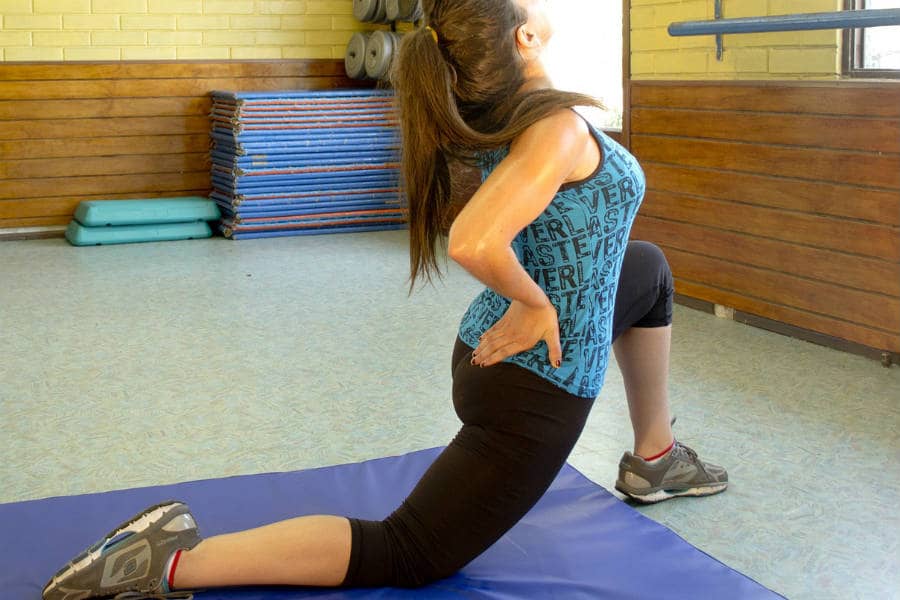
Suffering from a knee injury or advanced arthritis in the knee makes it hard for one to perform even simple activities like walking. Some still feel pain and discomfort even when lying down or sitting. In some cases, using walking supports and taking medications may be helpful. However, some consider total knee replacement as a viable option to correct the deformity and relieve the pain, among others.
Impact of Arthritis After ACL Reconstruction
According to a new study, people who have undergone reconstructive surgery such as total knee replacement have high chance of developing wear-and-tear arthritis, three times more in the injured knee than in the injured one (as published in the American Journal of Sports Medicine, 57 percent of patients who had ACL-reconstructed knees).
The risk of advanced arthritis in knee following successful ACL knee ligament reconstruction is greatly increased (50 percent greater) over the uninjured population. When a patient undergoes Total Knee Replacement (TKR) surgery in this setting it is not just a routine surgery.
TKR operative time is significantly longer and the risk of reoperation due to various causes (infection, stiffness, instability) is 5 times higher than the control group.
Total Knee Replacement Precautions
There are several precautions that the patient must undertake in order to achieve a safer and more successful total knee replacement. This includes several evaluations, tests and planning.
- Medical Evaluation
Physical examination for medical evaluation may be necessary weeks prior the scheduled operation. This is a precaution to make sure that you are in good health and shape to undergo the surgery successfully. The safety of the patient is of paramount importance.
- Tests
There are several tests that you may need to take as part of the plan of your surgery. Usually, the tests include electrocardiogram and taking urine and blood samples. In line with this, people with a history of urinary infections need to undergo urological evaluations before the surgery. The required treatments must be completed first before undertaking total knee replacement surgery.
- Medications
The surgeon needs to know what medications you are taking for your advanced arthritis in knee or any condition for that matter. This is important as there are certain medications that you need to refrain from taking before the surgery.
- Social Planning
You need to plan ahead, especially for period immediately after the surgery. You need someone to assist in you in things during the recovery period. Aside from the fact that you will need crutches or walker after the surgery, you also need to have a company to help you with your daily activities. If you live alone, you can plan that ahead so you can arrange with someone or a professional to be with you until you have fully recovered.
Assessing the Appropriateness of Total Knee Replacement Surgery
You must remember that having a total knee replacement surgery for advanced arthritis in knee or injury takes more than just yourself. You must also cooperate with your surgeon, your physician and your family. You need to be fully assessed to determine if you really need to undergo surgery and what will you benefit from it.
The following are the most common instances when patients are recommended to undergo knee replacement surgery:
- Knee deformity.
- Moderate and severe knee pain.
- Chronic knee inflammation and/or swelling which do not improve even when you have been taking medications.
- Severe knee pain or stiffness that makes it hard for you to walk and do everyday activities.
- Common treatments like injections, therapies and medications have not proved to be beneficial to your condition.
The recommendations for the surgery are based on the patient’s disability and pain. Age is not a factor, as there are no age or even weight restrictions before the surgery can be performed. However, most patients that undergo such procedure age from 50 to 80. This is because these are the ages when arthritis is common. Overall, with proper precaution and evaluation, total knee surgery may prove to be successful, regardless of the patient’s age.
If you have advanced arthritis in knee or injury and if you are looking for effective treatments with high chance of success, checkout Tarlow Knee today. We have extensive experience treating knee conditions and can help you find the right solution for you.

Dr. Tarlow is the only Orthopedic Surgeon to limit his practice to encompass Adult Reconstruction and Sports Medicine for the diagnosis and treatment of knees. Dr. Tarlow’s practice focuses on excelling in the art of Knee Diagnosis and Surgery. He performs the full spectrum of Knee Surgery from Knee Arthroscopy, ACL Reconstruction, Patellar Stabilization and Cartilage Restoration to Makoplasty Partial Knee Replacement to Total Knee Replacement to Revision Total Knee Replacement. His focus is exceptional customer service and he endeavors to exceed the diverse expectations of his patients.


can knee replacement surgery and ACL replacement be done concurrently?
The ACL is removed at the time of Total Knee Replacement surgery. There is an inherent stability in the design of total knee implants. In limited cases ACL reconstruction is combined with unicompartmental knee replacement surgery.
I never even thought about the planning that would be required for normal social situations after a knee surgery. After reading that section, though, I thought about the number of things I do in a normal night out with friends that would be difficult for somebody who just had a knee surgery. I actually have a good friend who is going through a knee surgery this week, and I want to see him before I move out of the state in a few weeks. I’ll definitely have to make sure the plan accommodates his after-surgery needs.
just had a left total knee replacement on Oct 5th .had acl surgery done 35 yrs ago.had right knee replaced yr 1/2 ago .the result of surgery on Oct 5.have to say it was four times intense in pain and stiffness then right knee .it really took the good out of me my drive is gone hope I get It back.
Had an ACL reconstruction 20+ years ago- still have old screw. Told I need a knee replacement but have concerns that my prior injury and current severe OA will not give me the “average” results. I am 48 and quite active (had been).
You mention…”(TKR) surgery in this setting it is not just a routine surgery… risk of reoperation due to various causes (infection, stiffness, instability) is 5 times higher than the control group”. Did you mean those with ACL? Are there studies I can read?
Yes Beth, TKR in your case (previous ACL tear/surgery) is more technically demanding. That said, with attention to certain details and use of appropriate implant constraint you will have a great outcome.
is there a time scale between acl reconstruction, unicompartmental knee replacement and a total knee replacement?? as i had these done 12 months apart from one another….. and i feel no better off than i did b4 these were done, i feel as tho im suffering some sort of traumatisation from the ops on my leg
Karl, not sure what you are asking – not common to have more than knee surgery in a calendar year. Generally it takes 10-20 years for a knee to completely wear out after an ACL tear.
i had a full ACL reconstrustion, then 12 months after i had a unicompartmental knee replacement then 12 months after that i had a total knee replacement, im worse off pain wise and mobility wise than before i had these done, ive now found out that my knee has failed/ come loose and am on waiting list to have the knee redone. i was told by my new surgeon that my old surgeon should not have performed a Unicompartmental Knee Replacement 12 months after my ACL Reconstruction as cannot determine whether the ACL Reconstruction has been a success…. is this so?
Karl,
I am too had ACL recon, it is severed again and failed for 12 years now. I didn’t want to go thru that recovery of 18 months again so didn’t replace it.
Suffered with severe instability all this time by falling and have broken by back, my leg, pelvis, and now the knee needs replaced. All I seek is stability and hope TKR will do accomplish that. One tiny crack in the sidewalk and down I go. I have talked to many and hear cadaver bone is best and 75% of people I inquire said they would not do a knee surgery again. Wasn’t worth the pain, recovery, and are unhappy. I am scared now and seek any comments you can share. The pain I can live with, the swelling and lack of movement for months on end, clicking, catching behind the knee…. I can’t. Thanks very much!
Hi Dr. Tarlow,
First, thank you for taking time to answering questions from us.
I’m a 45 year old with a history of 2 ACL reconstructions in the left knee. First was an allograft in 1998 and the last was an autograft in 2014 (and many other “clean up” procedures.) However, the cause of severe OA in my knee was most certainly an allograft lateral meniscus replacement in that same knee in 1998 shortly after the ACL reconstruction.
Nevertheless, I have been very active (to the extent permitted by the limited ROM of my knee) in sports (climbing, yoga etc.) and i have already weaned myself off running and other more taxing activities for years. However, it is currently to a point where the limited ROM (+4 to -120 max) is placing a huge limit on my lifestyle.
I’ve begun looking into TKR as an option. My biggest question is for someone with an active lifestyle and with multiple major knee surgeries in the past, what is the best type of prosthesis. I’ve researched those by Depuy Synthes and Zimmer, and think that ones with high flexion and probably a rotating platform may be more suitable, is that true? That said, I wonder if my history and severity of the OA would otherwise limit my options. Furthermore, I understand that failure of prosthesis usually occur on the tibial component where bone cement is used, and so I wonder what’s the difference in recovery time and rehab protocol between the two. Lastly, based on all that I’ve read, it seems that cement is always used for the femoral and patella components, is that true?
My biggest goal is to regain the biggest ROM as much as possible as well as to eliminate the soreness from long periods of standing or walking. I hope my goal is reasonably achievable.
Thanks.
Best option may be robotic, press fit TKA.